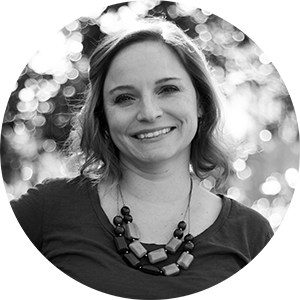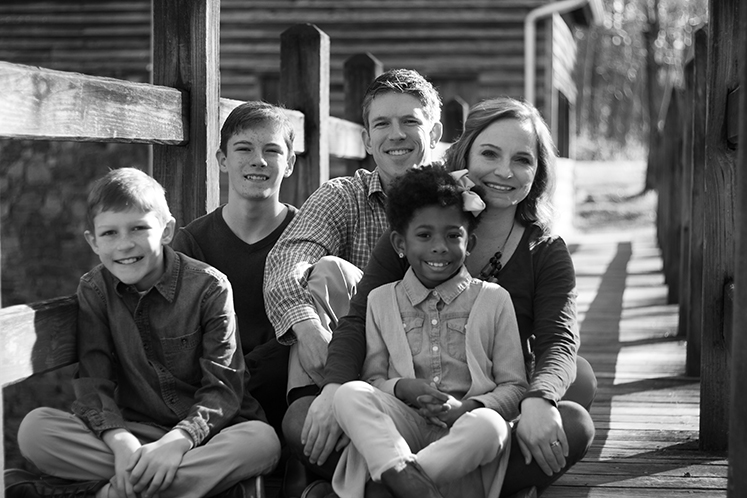
Since she began her nursing career, Kristen Ammon has accumulated a wealth of knowledge and experience but she has always been drawn to the oncology and transplant populations. In this week's Spotlight, Ammon discusses her current responsibilities as nurse manager for the 5200 Unit and offers her perspectives on the biggest challenges and opportunities in nursing. She also talks about what she enjoys most about her work and offers some valuable advice for aspiring nurses.
How long have you been at Duke? How did you decide to come here?
I’ve been at Duke for 16 years and came to Durham when my husband became a park ranger at Eno River State Park. I interviewed at other hospitals, but the team in the CHC (where I started) was unforgettable. I wanted to be on a team like that and work for an institution that placed such a high value on learning and research.
What are your current responsibilities as nurse manager for the 5200 Unit? What does your typical day look like?
My current responsibilities as a nurse manager look something like a firefighter, social worker, coach and nurse all rolled into one! These days, a typical day includes lots of Zooms and having conversations with various members of my team. There’s often data and metrics to manage, emails to read and huddles to lead, but if I’m lucky, I get to participate in a confetti parade!
How and when did you initially become interested in nursing? What made you decide to pursue a career in pediatric transplant and cellular therapy in particular?
I have wanted to be a nurse for as long as I can remember and even took healthcare sciences and joined healthcare clubs in high school. My first nursing job was on a med/surg/hem-onc floor in Charlotte (now Levine Children’s), and I was just drawn to the oncology and transplant populations. I was stimulated by the acuity and thrived in getting to know my patients and families in ways that allowed me to anticipate their care needs. When I came to Duke, I was fascinated by the cutting edge treatments going on in PBMT clinic and again, liked seeing the same patients all the time. I never worked as a staff nurse on 5200, but always thought they were a great unit and provided really amazing care. After being the manager in the clinic for several years, I was honored to be given the opportunity to serve 5200 as the manager. The field of transplant has changed so much…I learn something every day!
What do you see as the biggest current challenges and opportunities in nursing—specifically, in the field of pediatric blood and marrow transplant nursing?
Nursing requires a lot of a human interaction, and transplant nursing is no exception. Patients are sick, families are complex and nursing bears the brunt. It’s tough to have nurses want to stay at the bedside for many years, and so turnover and new hires become the usual. Nurses who work in transplant, as in other specialties, have to constantly find ways to replenish and build resiliency. The pace of change in healthcare and medicine isn’t slowing down, and nurses are challenged to keep up, do more with less, and keep from feeling burned out.
Are there any special projects you are doing or plan on doing?
Our team has been focused on rebuilding our staff and becoming a mixed unit of transplant and high risk oncology patients. This has required multidisciplinary work to look at workflows, processes and clinical care. We also plan on moving into the new, beautiful bed tower and look forward to the opportunities to provide better patient experience and innovate the ways we deliver care.
What do you enjoy most about your work?
It is most inspiring to me to support nurses in providing great care and contributing to positive patient outcomes. At my core, I’m a nurse. I enjoy helping people, even when it means having hard conversations or giving feedback. I get a great deal of satisfaction from seeing people grow into their potential as great nurses.

Who was your most significant mentor and what knowledge did you gain through this collaboration?
I completed a preceptorship with our former Children’s chief nurse, Jane Mericle. She modeled relational leading and the importance of listening to people. She was pretty famous for saying “we have to lead through this”, and I’ve never forgotten that. Leading doesn’t mean you avoid the hard or go around it. I also learned the critical skill of setting aside time for hair appointments. Self-care is important--however that looks for you!
Do you have any advice for nursing students?
Lots! First, develop good boundaries and self-care practices before you start as a nurse. Know yourself (including your enneagram number if you are a nerd like me) and how you show up in the world. Nursing can be rewarding and not draining if you cultivate a full life outside work with friends, family and life-giving hobbies. Focus on being flexible and responsive to changing needs and expectations. It will serve you, your future coworkers and your patients/families well!
What passions or hobbies do you have outside of Duke?
I try to be active and am currently training for a Sprint Triathlon with my husband. Our 3 kids keep us on our toes so we regularly try to humble them with competitive board games. I love to read before I fall asleep at night and am currently working my way through the West Wing series. My faith keeps me grounded, and I’m most grateful for that.